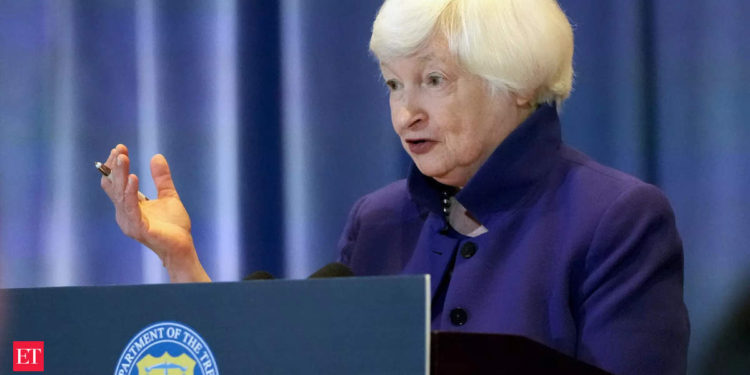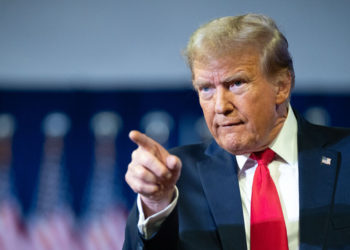“Too strong a role for state-owned enterprises can choke growth, and an excessive role for the security apparatus can dissuade investment,” she added, speaking at the US-China Business Council’s 50th anniversary dinner in Washington.
US companies have long complained about what they see as an unfair business environment in China, with limited protection for intellectual property and preferential treatment afforded to domestic competitors.
The fears were worsened this year by a crackdown on consulting firms operating in China, and changes to an anti-espionage law that gives Beijing more power than ever to punish what it deems threats to national security.
Citing a recent US-China Business Council member survey, Yellen noted that firms were reconsidering investment plans and said that should be concerning for Beijing.
A bigger proportion of companies signaled plans to move some operations out of China in the 2023 survey than any year since 2016.The trends point to potential benefits in China “pursuing structural reforms,” Yellen said.”For too long, American workers and firms have not been able to compete on a level playing field with those in China,” she added.
“The PRC deploys unfair economic practices, from non-market tools, to barriers to access for foreign firms, to coercive actions against American companies,” Yellen said, referring to the People’s Republic of China.
– Managing ‘shocks’ –
At Thursday’s dinner, the two countries’ ambassadors read letters from US President Biden and Chinese leader Xi Jinping — with Xi laying out a competing view to Yellen’s, saying there was “great potential” for “strengthening China-US trade cooperation.”
He added that Beijing would “unswervingly promote high-level opening up to the outside world, and create a market-oriented, rule of law-based, internationalized business environment.”
“Chinese modernization will bring more opportunities to global enterprises including American ones,” the letter continued.
Yellen also laid out priorities for US-China economic ties next year, noting that relations between the world’s two biggest economies would continue to face challenges.
“We seek not to resolve all our disagreements nor avoid all shocks. This is in no way realistic,” she said.
But Yellen added that Washington aims to “make our communication resilient.”
When both sides disagree and shocks occur, this will help “prevent misunderstanding from leading to escalation and causing harm,” she said.
Officials have sought to put a floor under relations as tensions soared in recent years — with both countries clashing on issues such as human rights and export controls.
The Biden administration has made some steps to take the heat off, with visits to China by Secretary of State Antony Blinken, Yellen and Commerce Secretary Gina Raimondo.
In November, Biden and Xi held an in-person summit, agreeing to restore military communications.
– Seeking clarity –
Yellen said that her next trip to China as Treasury chief will include discussing “difficult areas of concern.”
She added that the United States will hold firm its commitment to clear communication on topics like outbound investment restrictions, and keep pushing China on national security issues.
Other priority areas include “pressing for clarity on China’s economic policies and policymaking to better inform our own decision-making.”
“Understanding China’s plans, especially how China intends to respond to challenges with local government debt and the real estate market or how it might react if unexpected weaknesses in its economy should arise, is crucial,” she added.
The United States will also seek more transparency on China’s non-market practices, Yellen said, and boost exchanges between financial regulators and in climate cooperation.
Responding to Yellen’s comments on Friday, Chinese Foreign Ministry spokeswoman Mao Ning said that Beijing hopes “the US side will be consistent with its words and actions”.
“It should not reiterate its intention to cooperate with the Chinese side… while at the same time constantly wielding the stick of sanctions against Chinese enterprises,” she said.







Discussion about this post